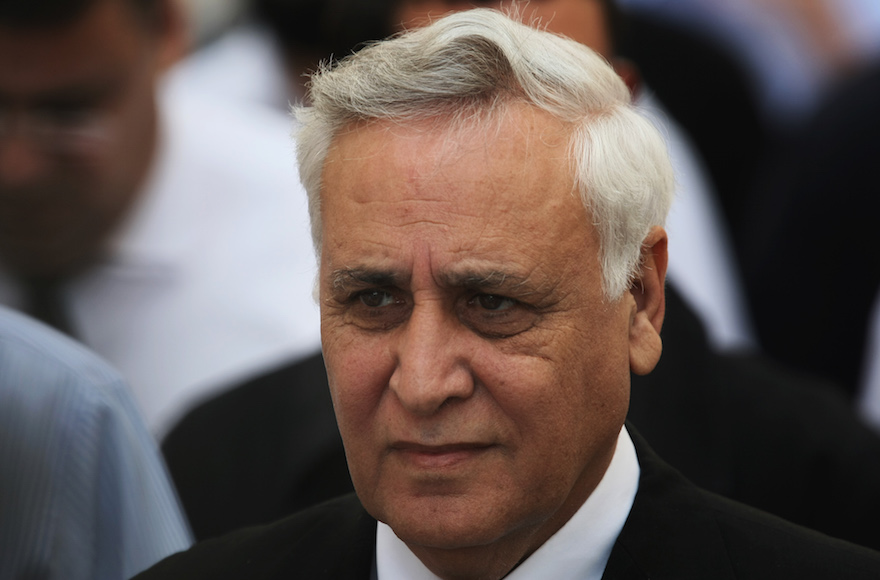JERUSALEM (JTA) — Former Israeli President Moshe Katsav was rejected for a second time in his bid for an early release from prison on sexual assault convictions.
An Israel Prisons Service parole board on Thursday rejected Katsav’s request for an early release, four months after turning him down the first time.
Katsav, 70, has served about two-thirds of a seven-year jail sentence for rape, sexual assault and harassment. He began serving his sentence in December 2011 and is scheduled to be released in December 2018.
Early parole of up to a one-third reduction in a sentence is common in Israel.
The parole board noted that Katsav continues to deny the crimes that he was convicted of and said it would again consider his early release after he participates in a six month in-prison rehabilitation program for sexual offenders, according to Israeli media reports. The board heard the second parole request after social workers from the Prisoner Rehabilitation Authority said that Katsav had recognized his errors and was willing to enter a rehabilitation program.
The social workers in a report quoted Katsav as saying: “I no longer want to prove my innocence, I have no strength to wage a campaign… I’m not waging a campaign… I’m tired; I have no strength for anything.”
Two of Katsav’s victims wrote to the parole board and called on it to deny an early release for Katsav. Katsav also blamed the parole denial on female Knesset members, who he asserted intervened with the parole board to thwart his request.
Katsav’s attorney told Ynet that he will appeal the decision in court.
The charges stem from complaints by various subordinates when Katsav served as tourism minister and president.
Katsav is the first Israeli president to be sentenced to prison.
He resigned in the wake of the allegations shortly before the end of his term in 2007 and was succeeded by Shimon Peres.
Katsav, who immigrated to Israel from Iran in 1951, was elected president by the Knesset in 2000 in an upset over Peres.
JTA has documented Jewish history in real-time for over a century. Keep our journalism strong by joining us in supporting independent, award-winning reporting.






